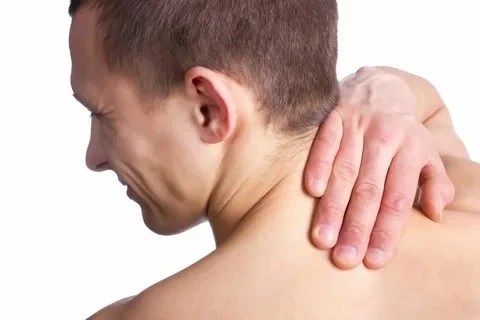For those with acute or chronic pain, painkillers can be a lifesaver. These drugs can enhance quality of life and offer much-needed relief from conditions like headaches, backaches, and flare-ups of arthritis. But like any prescription, taking painkillers has hazards, especially the risk of overusing them. When painkillers are used excessively, there might be major health risks, such as drug addiction, organ damage, and overdosing. In this post, we\'ll discuss the significance of not abusing painkillers excessively and offer helpful advice on how to take them sensibly and safely.
Recognizing Abuse of Pain Killing Drugs
Painkiller overuse, sometimes referred to as medicine misuse or overuse, is when people take these drugs more frequently or in larger dosages than is advised. This may occur for a number of causes, such as:
Chronic Pain Management:
People who experience chronic pain may find that taking medicine on a daily basis is necessary to control their symptoms. Tolerance, on the other hand, might develop over time and require higher doses to produce the same degree of pain relief.
Self-Medication:
Without first visiting a medical expert, some people choose to self-medicate with painkillers. This raises the possibility of overuse and possible injury by resulting in improper dosage or usage of the medication.
Dependency:
People may experience physical or psychological dependence on painkillers at some point, which can result in compulsive usage of the drugs even in the absence of pain.
Misunderstanding of Risks:
A lot of people believe that just because painkillers are accessible over-the-counter, they can be used without restriction and hence underestimate the risks involved with using them.
Dangers of Abusing Painkillers Excessively
The overuse of painkillers can have detrimental effects on one\'s physical and mental well-being. The following are a few hazards connected to abusing painkillers:
Medication Dependency:
The body may eventually grow reliant on painkillers in order to operate properly, which can cause withdrawal symptoms if the drugs are stopped.
Organ Damage:
When taken excessively or for extended periods of time, several painkillers, especially NSAIDs and opioids, can harm the kidneys, liver, and gastrointestinal system.
Enhanced Sensitivity to Pain:
In a paradoxical way, overuse of painkillers can cause a condition known as hyperalgesia, which is an enhanced sensitivity to pain. This may continue a vicious cycle of increasing drug dosage and exacerbating pain.
Medication Overdose:
Abusing prescription painkillers in excess can lead to overdose, which poses a serious risk to one\'s life. Overdose symptoms can include breathing difficulties, unconsciousness, and cardiac arrest.
How Not to Abuse Painkillers Excessively
Thankfully, people can take the following actions to ensure that they use painkillers appropriately and not excessively:
1. Pay Attention to dosing Instructions
Consistently adhere to the directions on drug labels or those supplied by medical professionals for dosing. Unless instructed otherwise by a healthcare expert, do not take more than the suggested amount or use frequency.
2. Limit Use Duration:
In order to alleviate symptoms, use painkillers as soon as feasible. Seek additional assessment and treatment options from a healthcare professional if pain intensifies or continues.
3. Use Non-Medication Alternatives:
Take a look at non-medication methods of treating pain, like acupuncture, physical therapy, exercise, and relaxation techniques. In the long run, these methods can lessen the need for painkillers by complimenting them.
4. Track Symptoms:
Keep an eye on your symptoms and track how your body reacts to painkillers. Stop taking the drug and see a doctor if you have any negative side effects or changes in your health.
5. Refrain from Self-Medication:
Seek medical advice before using painkillers for self-medication. Before beginning or altering a pharmaceutical regimen, always consult a medical expert.
6. Be Aware of the Risks:
Become knowledgeable about the possible side effects, overdose, and dependence that come with using painkillers. Based on your unique health requirements and risk considerations, make well-informed decisions regarding the use of medications.
7. Seek Help if Needed:
Consult a medical expert or addiction specialist if you find yourself becoming overly dependent on painkillers or if you are having trouble managing your prescription use. Support services are provided for those who are battling drug abuse or dependence.
In summary
Acute and chronic pain can be effectively managed with pain management medications, but it\'s important to use these drugs properly to prevent abuse and their related hazards. People can take pain relief medications safely and efficiently by monitoring their symptoms, avoiding self-medication, finding non-medication alternatives, following dosage instructions, limiting the amount of time they use them, being aware of the hazards, and getting help when they need it. Recall that taking medicine for pain relief is only one aspect of an all-encompassing pain management strategy. You must collaborate with healthcare providers to create a customized plan that takes into account your particular requirements and situation.
In summary,  People can take pain relief medications safely and efficiently by monitoring their symptoms, avoiding self-medication, finding non-medication alternatives, following dosage instructions, limiting the amount of time they use them, being aware of the hazards, and getting help when they need it. Recall that taking medicine for pain relief is only one aspect of an all-encompassing pain management strategy. You must collaborate with healthcare providers to create a customized plan that takes into account your particular requirements and situation.
People can take pain relief medications safely and efficiently by monitoring their symptoms, avoiding self-medication, finding non-medication alternatives, following dosage instructions, limiting the amount of time they use them, being aware of the hazards, and getting help when they need it. Recall that taking medicine for pain relief is only one aspect of an all-encompassing pain management strategy. You must collaborate with healthcare providers to create a customized plan that takes into account your particular requirements and situation.



